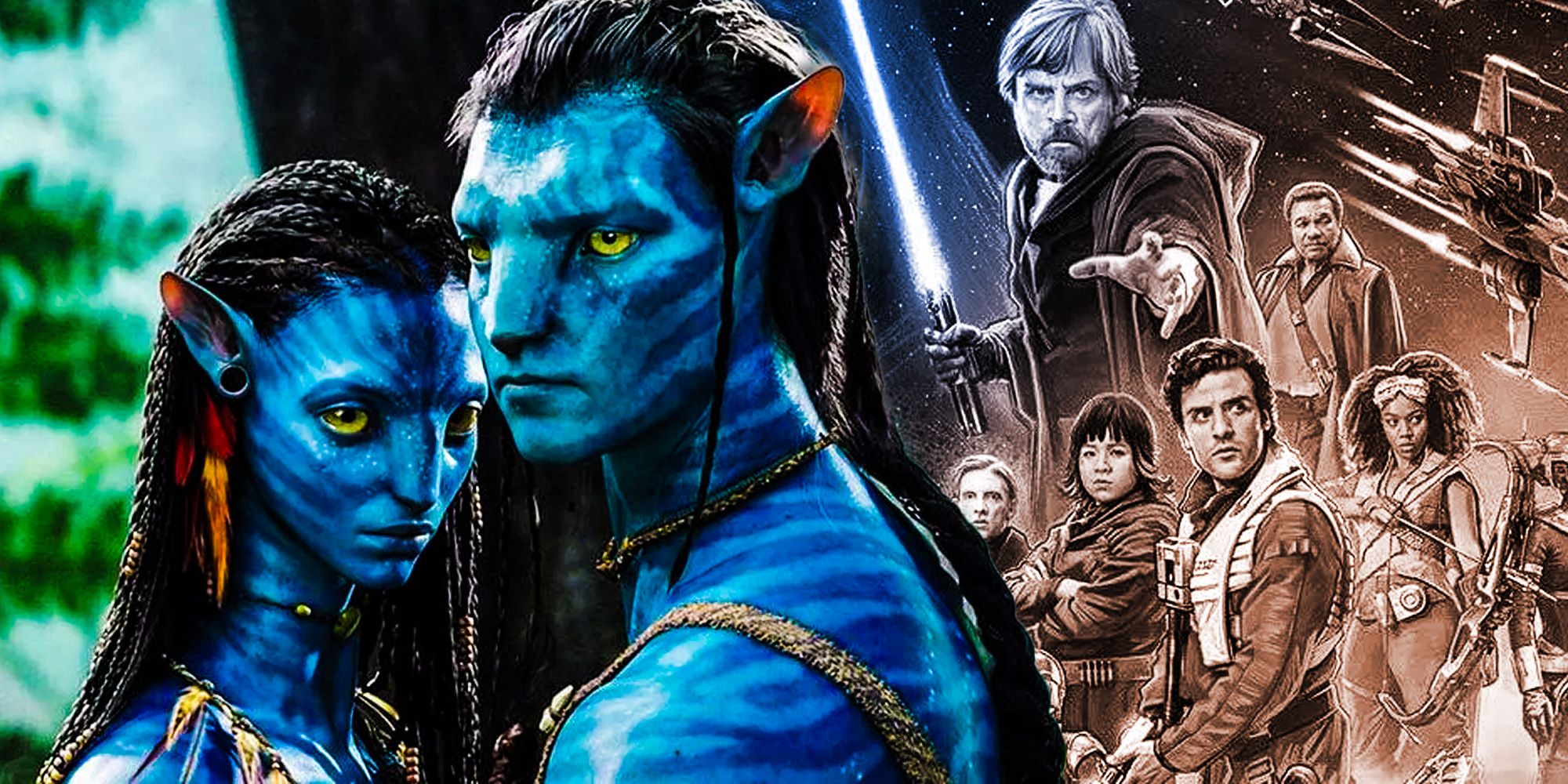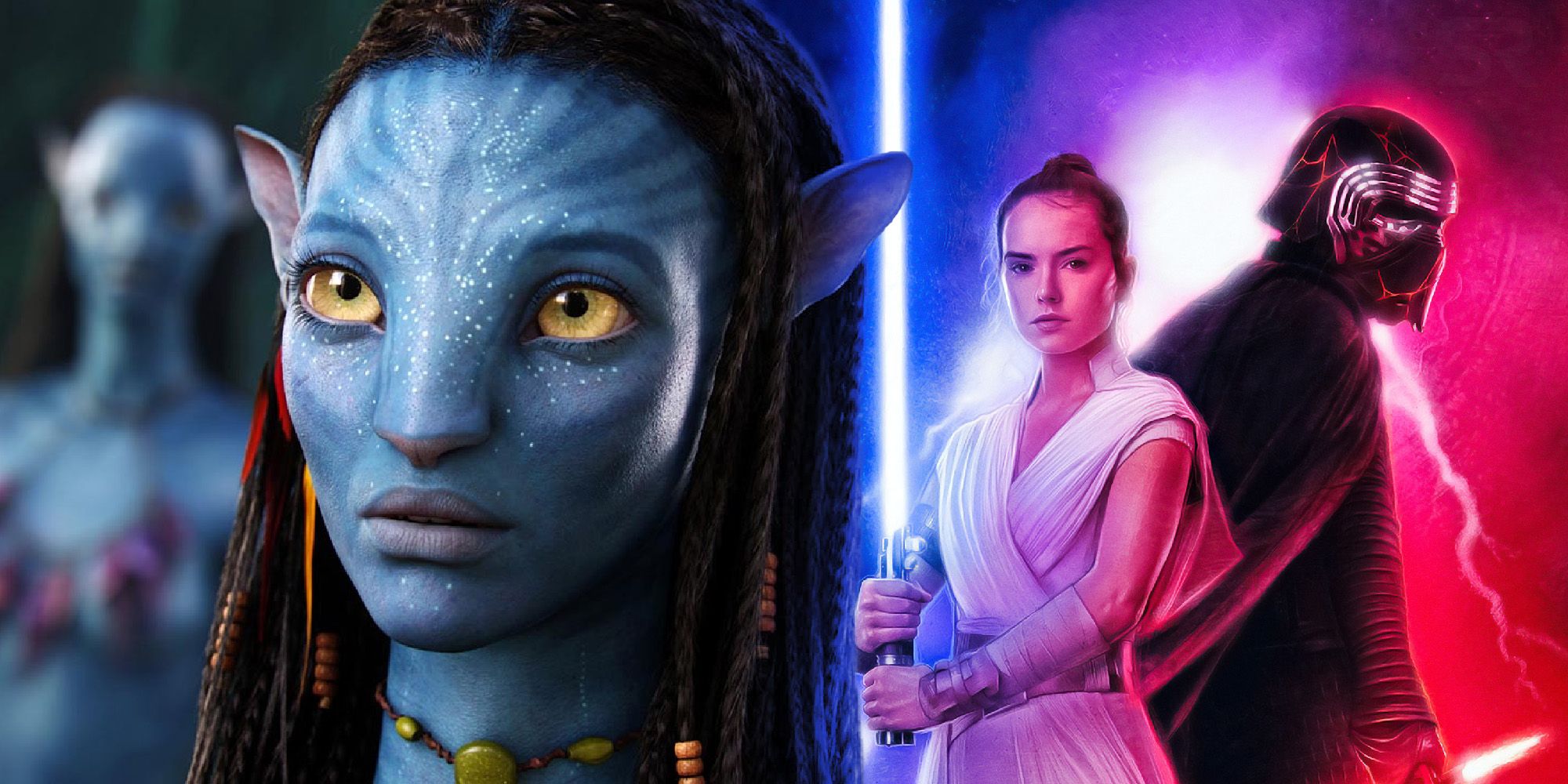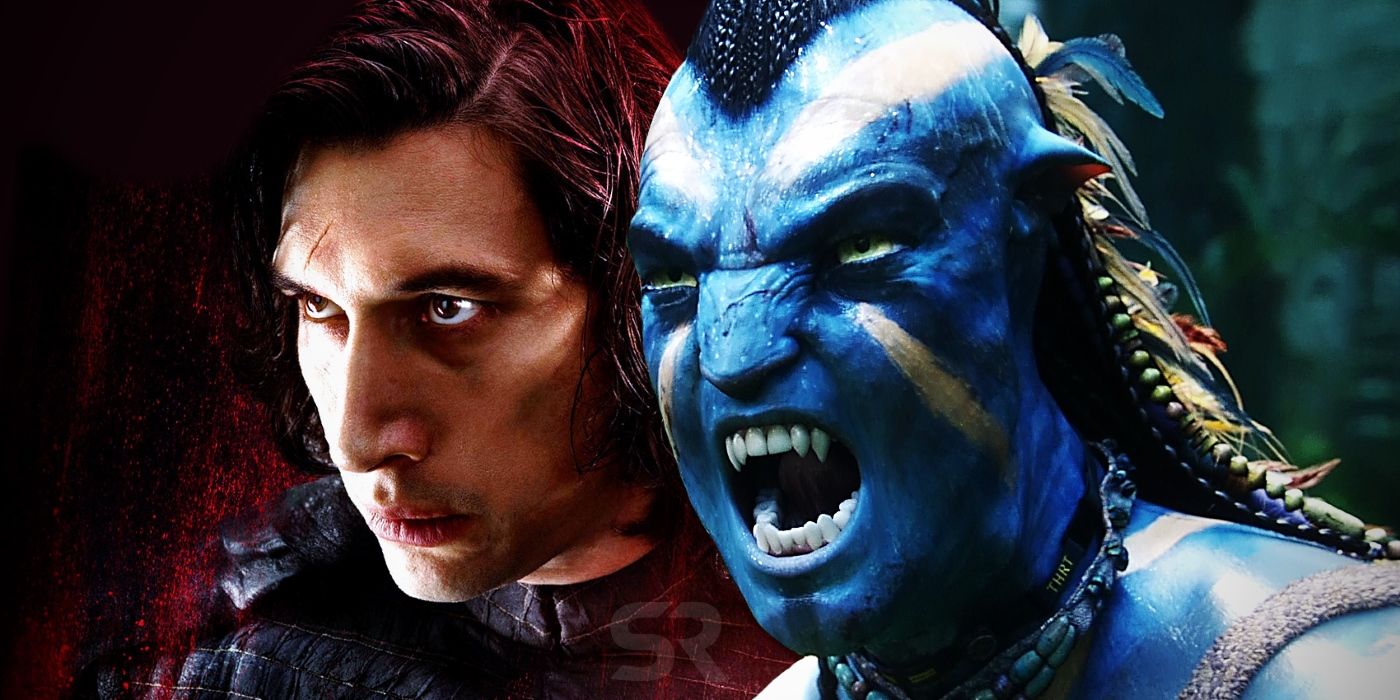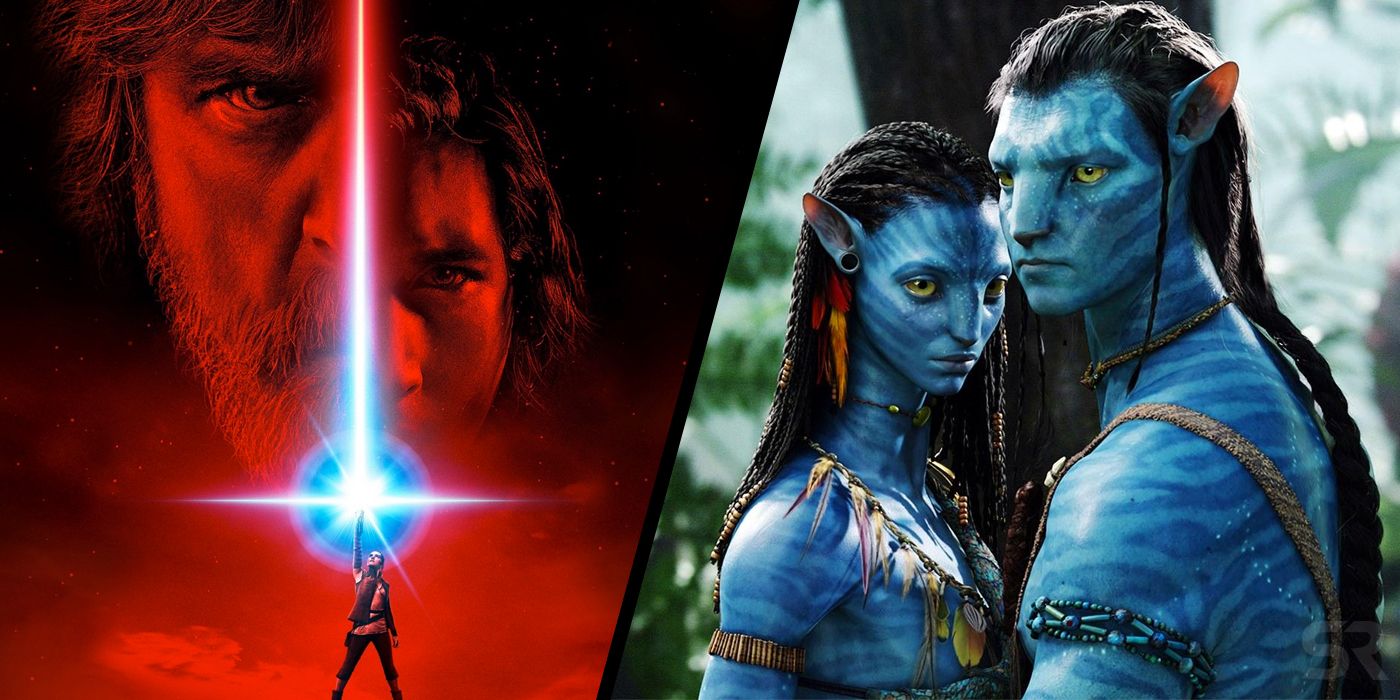How Avatar's Sequels Can Avoid Disney's Star Wars Mistakes

Disney's sequels to George Lucas' Star Wars films can teach James Cameron's long-awaited Avatar franchise several valuable lessons in how to prolong the life of an IP without betraying fans. The iconic science fiction franchise wrapped up its third trilogy with the release of 2019's Star Wars: The Rise of Skywalker, earning a mixed critical response and the worst box office return of the sequel trilogy. Meanwhile, Cameron's own sequels have arguably faced their own issues, as Avatar 2 and its successors have been delayed again and again. But as he prepares to release the second chapter of the revived franchise, it would behoove Cameron to heed the cautionary tale of the Star Wars sequels.
When Disney acquired Lucasfilm in 2012, the studio wasted little time before announcing Star Wars' return to theaters. With the release of the first installment of their highly anticipated sequel trilogy, The Force Awakens, critics and audiences celebrated a triumphant return for the franchise and looked to the future. While The Last Jedi polarized viewers, hopes remained high that Episode IX might do for Star Wars what its blockbuster contemporary Avengers: Endgame did for the MCU. Alas, as the credits rolled, the consensus emerged that The Rise of Skywalker was far from a satisfactory finish to the Star Wars saga.
As Kathleen Kennedy and company were navigating this decade of franchise revitalization, James Cameron endured his own troubles in attempting to follow up his massive box office hit, Avatar (2009). The visionary director had already waited years for the technology to allow for his first CGI masterclass, and over the course of the 2010s, it appeared as though the scope of his ambitions would continue to postpone any Avatar sequels indefinitely. Even as critical favor cooled on the film, Cameron remained determined to muscle his vision to the box office, and after additional delays resultant of the COVID-19 pandemic, it would appear as though Avatar could even supersede Star Wars with its sequels. But in order to avoid some of the same issues that undercut Disney's trilogy, Cameron should learn from Star Wars' mistakes.

One of the biggest criticisms levied against the Star Wars sequel trilogy is that there wasn't a concrete plan to tie all three films together. When building a multi-movie or multi-season narrative, it helps to have certain overarching goals in mind from the start in order to avoid the final product feeling disjointed and meandering. The critically-acclaimed Avatar: The Last Airbender knew its destination from episode one, whereas Lost, created by Star Wars: Episodes VII and IX director J.J. Abrams, famously overstayed its welcome and turned off fans with its aimless and convoluted story decisions in its later seasons. Similarly, while Episode VII started off on the right foot, in the end, Disney's Star Wars trilogy was doomed by its lack of a plan.
Naturally, if Cameron wishes to avoid this pitfall, they need to have an understanding of their ultimate destination before they start laying narrative groundwork. Cameron has already made plans to release four more films in the franchise, and reports have indicated that each Avatar sequel will have a standalone plot. While it's important for each film to deliver on its individual stories, the Avatar team would do well to plan how each film will relate to one another, lest they encounter similar problems with consistency from film to film as did the Star Wars sequels.

This consistency will likely be aided by consistent leadership from the top. Issues with the sequel trilogy have been frequently attributed to the carousel of directors who helmed each film: from Abrams, to Johnson, to Trevorrow (which ultimately went back to Abrams on a shortened schedule). The differences between each director's vision amounted to three films in which each pursued their own ideas about what Star Wars should be, rather than presenting a unified message from the start. For all its flaws, the prequel trilogy was consistent in tone and in story from the get-go, each film having been written and directed by Lucas himself. With the sequels, differences in creative vision gave audiences thematic whiplash, vacillating between different ideas of what Star Wars should be from movie to movie.
As of now, Cameron is slated to write and direct each of the sequels, placing the onus of consistency squarely on his shoulders. On the surface, this should solve the consistency issue. Nevertheless, it would be wise of Cameron to heed this example and actively work towards honing his vision for the franchise from the start. He needs to have a plan, and he needs to execute that plan with a consistent tone and thematic message across the four upcoming sequels.

Even amidst a successful reception, Episode VII was criticized for rehashing plot elements from the original Star Wars. This penchant for nostalgia would continue to plague the sequel trilogy right through Episode IX. While The Force Awakens excited viewers eager to revisit the expansive world of The Force, retreading old narrative ground wore thin on viewers by the third film, and the pastiche of familiar elements for the sake of tapping into audience nostalgia in The Rise of Skywalker proved to be a death blow. Nostalgia alone does not a good film make.
Fortunately for Avatar, there's hardly the vast narrative tradition and fan network nipping at Cameron's heels as there was for the Star Wars sequel trilogy. There's simply less original material available to retread with Avatar. That being said, the 2009 film faced its fair share of condemnation for lack of originality, as Avatar was criticized as a superficial science fiction retelling of Pocahontas or Dances with Wolves. If Cameron's sequels are to stand up to the increased ethical rigor of the current media landscape, they need to treat their native culture more respectfully and distance themselves from less socially-aware comparables.
from ScreenRant - Feed

